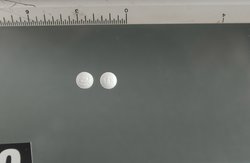A pharmaceutical company that doesn't invent pharmaceuticals, and that pursues health care markets nobody wants? That's the niche of Ovation Pharmaceuticals, a young Deerfield company whose non-scientific entrepreneur-founder has broken all the rules -- with remarkable success. Since its creation in 2000 by Chicago-bred De Paul MBA Jeff Aronin, Ovation has pioneered an arcane role in the health care industry by godfathering orphan drugs cast off by the big-league pharma companies. In the bargain, it has been saving lives, earning a growing profit, and doubling revenues each year.
After serving as CEO of two other venture-backed health care companies and taking them public -- all by age 34 -- Aronin saw another untapped market opportunity. "Across the spectrum of drug science," he says, "there was a broad range of critical needs going unfulfilled -- unreasonably -- due only to the fact that the disease represented too small a market for the major company that had conceived a viable cure. Thus, the developer was simply reluctant to invest the marketing dollars to let the world know about it."
Focus on the orphans
"Our vision," Aronin says, "was that if a company could focus on these orphan drugs to treat orphan diseases, perhaps there was a way to bridge this gap, finish the product development and physician education job, facilitate distribution, and do it profitably."
Even though nobody had ever tried this approach to pharmaceuticals, and even though conventional wisdom said to start a drug company on the East or West coast, Aronin convinced Chicago venture mega-capitalists GTCR Golder Rauner to back the idea, and let him plant the operations in Deerfield. The stake was $150 million -- the largest ever to any pharma start-up, Aronin claims.
The orphan market he saw as most urgent and neglected related to disorders of the central nervous system. Foremost among these was epilepsy, a malady that affected 293,000 Americans last year, plus many people abroad.
While several drugs had been developed for successful treatment, the market was considered too limited by the giants, and thus distribution lagged badly. Aronin stepped forward and signed licensing agreements for several key drugs, permitting Ovation to complete development and distribution.
Today the company offers more epilepsy medications than any source anywhere, with four drugs approved by the FDA domestically and three more pending approval. Its impact has been so profound that the Epilepsy Foundation of Greater Chicago recently presented its Keeper of the Flame Award to Aronin.
Foundation President Phil Gattone says: "Aronin's work -- keeping smaller-market drugs available to consumers -- has made it possible for thousands to obtain the help that otherwise would be unavailable, a dream come true for many."
Aronin says: "Even though central nervous system treatment is potentially a $2 billion market worldwide, it has been sadly neglected. Our niche is about 30 percent of that. For attention- deficit syndrome, our product Desoxyn is the drug of last resort, if Ritalin fails. Our product Chemet is the only drug available for lead poisoning. Our Nembutal treats convulsions."
Ovation's 150 employees, including 20 R&D scientists, are based at its Deerfield headquarters plus production bases in Lebanon, N.J., and in Puerto Rico. Its total of eight FDA-approved drugs are marketed primarily through the major wholesalers like Cardinal and McKesson to neurologists, psychiatrists, hospitals and clinics.
Looking for product
Sales this year should top $80 million, Aronin tells me. His two- year goals are to acquire two to five more key products, all in the CNS niche (another important undertreated market is schizophrenia), and grow the business to $200 million in revenues.
Fortified with a whopping half-billion dollars in additional funds available from private investors plus "adequate" cash flow from each current product, Ovation is now reaching the stage where it's placing bets on drugs that are not yet FDA-approved.
An IPO in the offing?
"We're in no hurry," Aronin says. As he stated when inducted into the Entrepreneurial Hall of Fame a few nights ago at the University of Illinois at Chicago campus, during Professor Gerry Hills' annual tribute dinner, "Never has it been more exciting for a guy in a business suit to impact the lives of patients in need."
Ted Pincus is a finance professor at DePaul and an independent communications consultant and journalist.
Copyright The Chicago Sun-Times, Inc.
Provided by ProQuest Information and Learning Company. All rights Reserved.




